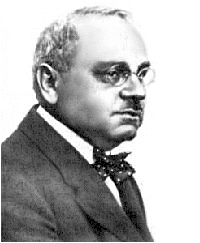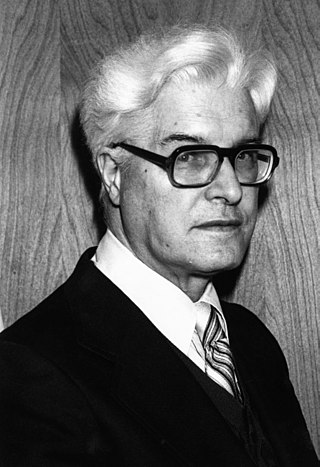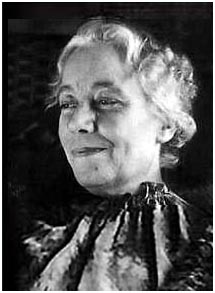Related Research Articles
Transactional analysis is a psychoanalytic theory and method of therapy wherein social interactions are analyzed to determine the ego state of the communicator as a basis for understanding behavior. In transactional analysis, the communicator is taught to alter the ego state as a way to solve emotional problems. The method deviates from Freudian psychoanalysis, which focuses on increasing awareness of the contents of subconsciously held ideas. Eric Berne developed the concept and paradigm of transactional analysis in the late 1950s.

Alfred Adler was an Austrian medical doctor, psychotherapist, and founder of the school of individual psychology. His emphasis on the importance of feelings of belonging, relationships within the family, and birth order set him apart from Freud and others in their common circle. He proposed that contributing to others was how the individual feels a sense of worth and belonging in the family and society. His earlier work focused on inferiority, coining the term inferiority complex, an isolating element which he argued plays a key role in personality development. Alfred Adler considered a human being as an individual whole, and therefore he called his school of psychology "Individual Psychology".

Eric Berne was a Canadian-born psychiatrist who created the theory of transactional analysis as a way of explaining human behavior.
Wolfgang Metzger is considered one of the main representatives of Gestalt psychology in Germany.

I'm OK – You're OK is a 1967 self-help book by psychiatrist Thomas Anthony Harris. It is a practical guide to transactional analysis as a method for solving problems in life.
Neo-Freudianism is a psychoanalytic approach derived from the influence of Sigmund Freud but extending his theories towards typically social or cultural aspects of psychoanalysis over the biological.
Depth psychology refers to the practice and research of the science of the unconscious, covering both psychoanalysis and psychology. It is also defined as the psychological theory that explores the relationship between the conscious and the unconscious, as well as the patterns and dynamics of motivation and the mind. The theories of Sigmund Freud, Carl Gustav Jung, and Alfred Adler are all considered its foundations.
The term style of life was used by psychiatrist Alfred Adler as one of several constructs describing the dynamics of the personality.
Individual psychology is a psychological method or science founded by the Austrian psychiatrist Alfred Adler. The English edition of Adler's work on the subject (1925) is a collection of papers and lectures given mainly between 1912 and 1914. The papers cover the whole range of human psychology in a single survey, and were intended to mirror the indivisible unity of the personality.

Psychodynamics, also known as psychodynamic psychology, in its broadest sense, is an approach to psychology that emphasizes systematic study of the psychological forces underlying human behavior, feelings, and emotions and how they might relate to early experience. It is especially interested in the dynamic relations between conscious motivation and unconscious motivation.
Fritz Künkel was known both as a German psychiatrist and an American psychologist. He might best be understood as a social scientist who sought to integrate psychology, sociology and religion into a unified theory of human being. He consolidated these insights into a theory of character development and finally into his "We-Psychology".

Henri Frédéric Ellenberger was a Canadian psychiatrist, medical historian, and criminologist, sometimes considered the founding historiographer of psychiatry. Ellenberger is chiefly remembered for The Discovery of the Unconscious, an encyclopedic study of the history of dynamic psychiatry published in 1970.
Heinz Ludwig Ansbacher was a German-American psychologist specializing in the theories of Alfred Adler.
Adler University is a private university, with two campuses in North America. The university's flagship campus is in Chicago, Illinois, and its satellite campus is located in Vancouver, British Columbia. The university also offers online classes and degree programs online for both masters and doctoral students.

Karen Horney was a German psychoanalyst who practiced in the United States during her later career. Her theories questioned some traditional Freudian views. This was particularly true of her theories of sexuality and of the instinct orientation of psychoanalysis. She is credited with founding feminist psychology in response to Freud's theory of penis envy. She disagreed with Freud about inherent differences in the psychology of men and women, and like Adler, she traced such differences to society and culture rather than biology.
Script analysis is the method of uncovering the "early decisions, made unconsciously, as to how life shall be lived". It is one of the five clusters in transactional analysis, involving "a progression from structural analysis, through transactional and game analysis, to script analysis". Eric Berne, the father of transactional analysis, focused on individual and group psychotherapy but today, transactional analysis and script analysis is considered in organisational settings, educational settings and coaching settings.

Sophie or Sofie Lazarsfeld was an Austrian-American therapist and writer, a student of Alfred Adler.
The Journal of Individual Psychology is a quarterly peer-reviewed academic journal covering theory and methods of individual psychology. It is currently published by the University of Texas Press on behalf of the North American Society of Adlerian Psychology. The editors-in-chief are Jon and Len Sperry.
Sidonie Reiss (1882-1970) was an Adlerian psychotherapist and child psychologist.
References
- ↑ Z. Miller, Re-Theorizing Discipline in Education (2010) p. 15-6
- ↑ 'Neo-Adlerian model'
- ↑ Wittels, Fritz (1939). "The Neo-Adlerians". American Journal of Sociology. 45 (3): 433–445. doi:10.1086/218313. JSTOR 2769857.
- ↑ Heinz L. and Rowena Ansbacher eds., Superiority and Social Interest (1964)
- ↑ Henri F. Ellenberger, The Discovery of the Unconscious (1970) p. 637-41
- ↑ Erika Stern, TA, the state of the art (1984) p. 4 and p. 31
- ↑ Eric Berne, What Do You Say After You Say Hello? (1974) p. 58
- ↑ Thomas A. Harris, I'm OK - You're OK (1969) p. 68
- ↑ Berne, p. xvi
- ↑ Harris, p. 76 and p. 67
- ↑ Ellenberger, p. 643